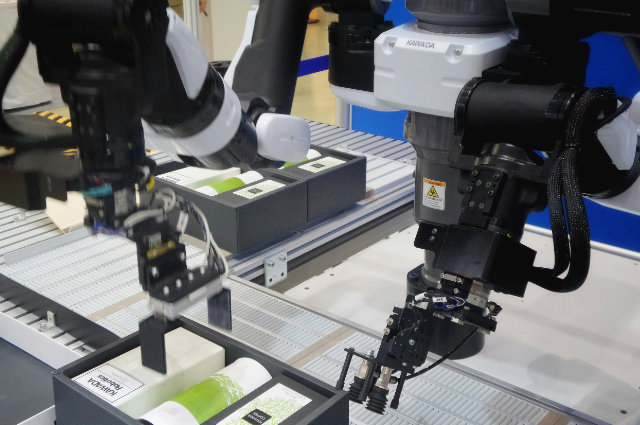
Photo by Possessed Photography on Unsplash
The Impact of Artificial Intelligence on Various Industries
Artificial intelligence (AI) has rapidly transitioned from a futuristic concept to an integral part of our daily lives. Its influence spans multiple industries, revolutionizing how businesses operate and how we interact with technology. This article explores the profound impact AI has had on healthcare, finance, transportation, and manufacturing, among other sectors.
Healthcare
AI's integration into healthcare has transformed patient care, diagnostics, and treatment. One of the most significant advancements is in medical imaging. AI algorithms can analyze X-rays, MRIs, and CT scans with remarkable accuracy, often surpassing human capabilities. This has led to earlier detection of diseases such as cancer, significantly improving patient outcomes.
Moreover, AI-driven predictive analytics have revolutionized patient management. By analyzing vast datasets, AI can predict patient deterioration, optimize treatment plans, and reduce hospital readmissions. Telemedicine, powered by AI, has also gained traction, offering remote consultations and monitoring, which is especially crucial in underserved areas.
Robotics in surgery is another area where AI has made substantial strides. Robotic surgical systems, guided by AI, provide enhanced precision, leading to minimally invasive procedures, faster recovery times, and reduced surgical risks.
Finance
The financial sector has embraced AI to enhance efficiency, security, and customer experience. AI-driven algorithms are now pivotal in fraud detection, capable of analyzing transactions in real-time and identifying suspicious activities. This has significantly reduced the incidence of fraud and cyber-attacks.
In investment management, AI has transformed trading strategies. High-frequency trading algorithms leverage AI to make split-second decisions, optimizing returns and managing risks. Robo-advisors, another AI application, provide personalized investment advice, democratizing access to financial planning.
Customer service in banking has also been revolutionized by AI-powered chatbots and virtual assistants. These tools handle routine inquiries, provide financial advice, and improve customer engagement, allowing human agents to focus on more complex issues.
Transportation
The transportation industry is undergoing a paradigm shift with the advent of AI. Autonomous vehicles, once a concept confined to science fiction, are now a reality. Companies like Tesla, Waymo, and Uber are at the forefront, developing self-driving cars that promise to reduce accidents, enhance fuel efficiency, and provide mobility to those unable to drive.
AI also plays a critical role in traffic management. Smart traffic lights, powered by AI, adapt to real-time traffic conditions, reducing congestion and improving the flow of vehicles. Predictive maintenance in logistics and public transportation ensures that vehicles are serviced before breakdowns occur, enhancing reliability and reducing downtime.
In aviation, AI assists in optimizing flight routes, improving fuel efficiency, and enhancing safety through advanced predictive analytics. AI-driven systems can also streamline airport operations, from check-in to baggage handling, enhancing the overall passenger experience.
Manufacturing
The manufacturing sector has seen a revolution with the integration of AI and automation. AI-driven robots are now commonplace on factory floors, performing tasks with precision and efficiency far beyond human capabilities. This has led to increased production rates, reduced errors, and lower operational costs.
Predictive maintenance, powered by AI, is another significant advancement. By analyzing data from machinery sensors, AI can predict when a machine is likely to fail, allowing for proactive maintenance. This reduces downtime and extends the lifespan of equipment.
AI also facilitates mass customization in manufacturing. By analyzing consumer preferences and behaviors, AI can drive the production of customized products at scale, meeting specific customer demands while maintaining efficiency.
Retail
In the retail sector, AI is enhancing both online and in-store experiences. E-commerce platforms leverage AI to provide personalized shopping experiences, recommending products based on user behavior and preferences. This not only boosts sales but also enhances customer satisfaction.
In physical stores, AI-powered systems track inventory in real-time, ensuring shelves are stocked and reducing the risk of stockouts. Autonomous checkout systems, driven by AI, allow customers to shop and pay without human intervention, speeding up the shopping process and reducing labor costs.
Moreover, AI-driven demand forecasting helps retailers optimize inventory management, reducing waste and ensuring that products are available when and where customers want them.
Conclusion
The impact of artificial intelligence on various industries is profound and far-reaching. From healthcare to finance, transportation to manufacturing, and retail, AI is transforming how businesses operate and how we live our lives. As AI technology continues to evolve, its influence will only grow, bringing about new opportunities and challenges. Embracing AI and harnessing its potential will be crucial for industries to stay competitive and innovative in the future.
